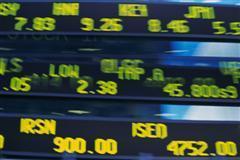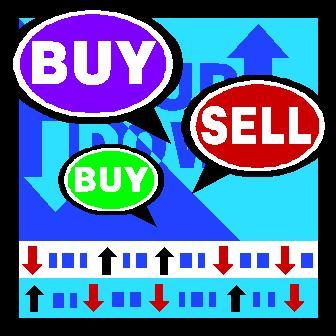| Home | About | Archives | RSS Feed |

The Independent Investor: 'Hurry, Hurry, Get Your Red Hot Iodine Here'
 Like hucksters selling hot dogs in the ball park, the media is having a field day with the Japanese nuclear crisis. Americans, fearing for their safety, immediately bought out the nation's supply of potassium iodide tablets. Investors are panicking worldwide, dumping trillions in equities, commodity and currency investments indiscriminately. There are so many rumors, falsehoods and downright lies flying around the airways that I am astounded we continue to tune into this drivel. I believe we all need to calm down and turn our TVs off.
Like hucksters selling hot dogs in the ball park, the media is having a field day with the Japanese nuclear crisis. Americans, fearing for their safety, immediately bought out the nation's supply of potassium iodide tablets. Investors are panicking worldwide, dumping trillions in equities, commodity and currency investments indiscriminately. There are so many rumors, falsehoods and downright lies flying around the airways that I am astounded we continue to tune into this drivel. I believe we all need to calm down and turn our TVs off.
As a former Fulbright Fellow to Japan, who has lived and spent a great deal of time in that wonderful country, I pray for a successful end to this nuclear crisis and a speedy economic and social recovery for the Japanese people, as I'm sure we all do. Events around the Fukushima reactor in Japan are precarious as I write this. Yet the knee-jerk response of the world's governments, citizens and investors, as illustrated by the volatility in the financial markets, once again proves my point — the markets are not efficient, never will be and there, my reader, provides the opportunity for you to prosper.
The Efficient Market Hypothesis (EMH), a theory concocted by academicians and followed stringently by those on Wall Street, maintains the current prices of securities reflect all information known about the security. They argue that investors cannot expect to outperform the overall market consistently on a risk-adjusted basis. Day-to-day changes in the market prices of securities cannot be predicted with any reliable degree of accuracy. Therefore any trading, security analysis or buy and sell strategies are of no value.
If these same market participants took the time to analyze the information coming out of Japan this week, I can't see how even a countrywide nuclear disaster in Japan will impact stocks in the U.S. or Europe or numerous other countries throughout the world.
Assurances that the fallout from these reactors, in a worst-case scenario would not create a Chernobyl-type calamity, have fallen on deaf ears. Dire predictions that this catastrophe will set back economic growth in Japan for years do not square with history, nor do forecasts that Japan's problems will put an end to our own recovery.
Most studies of similar disasters throughout the last few decades indicate Japan may suffer a quarter or two of slower economic growth followed by a pickup in GDP as reconstruction spending takes hold. In addition, the disaster occurred in Sendai, in northern Japan, which accounts for less than 2 percent of Japanese output.
The risk of nuclear fallout floating to this side of the Pacific has such a low probability that buying up iodine tablets on eBay for over $200 (more than 10 times the usual price) may make sense if you lived 25 miles from the Fukushima reactors, but here in the U.S. it makes no sense.
It also makes little sense to talk of abandoning nuclear energy as an alternative fuel source. I find nothing wrong with checking the 104 reactors in this country for possible weaknesses. I think that should be done on a regular basis anyway. America has not built a new nuclear energy unit since the Three Mile Island disaster. It would be a shame to once again abandon this strategic energy source because of events in Japan.
So what are my recommendations in dealing with this debacle?
This sell-off has created so many buying opportunities in so many sectors that this should be called the great global giveaway in equities. In my opinion we are very close to a bottom. In last weekend's column I wrote that I expected no more than a 5 percent decline in the S&P 500. We have already dropped 3 percent of that total. Some obvious places where the selling appears to be overdone are the nuclear energy sector and, of course, Japan. For long term investors, I wish you happy hunting.
Bill Schmick is an independent investor with Berkshire Money Management. (See "About" for more information.) None of the information presented in any of these articles is intended to be and should not be construed as an endorsement of BMM or a solicitation to become a client of BMM. The reader should not assume that any strategies, or specific investments discussed are employed, bought, sold or held by BMM. Direct your inquiries to Bill at 1-888-232-6072 (toll free) or e-mail him at wschmick@fairpoint.net. Visit www.afewdollarsmore.com for more of Bill's insights.
| Tags: nuclear, Japan, energy |
@theMarket: No More Than 5 Percent
 Patience is a virtue that many investors find difficult to master, present company included. However, this time it appears to have paid off. The tight trading range that held the market captive over the last few weeks has finally been broken. Unfortunately it was to the downside.
Patience is a virtue that many investors find difficult to master, present company included. However, this time it appears to have paid off. The tight trading range that held the market captive over the last few weeks has finally been broken. Unfortunately it was to the downside.
This week, especially Thursday, a major sell-off occurred across all asset classes — equities, gold, silver, crude — with economically sensitive stocks leading the decline. It is a key indicator, for me and suggests that the flush-out, selling climax or whatever you want to call it is beginning.
The ostensible reasons for this rout were numerous: a sudden and surprising trade deficit in, of all places, China, a downgrading of Spanish debt by another credit agency, a jump in U.S. jobless claims and of course, some further bad news from the Middle East. This time the concern is riots in the eastern part of Saudi Arabia.
On Friday, all these troubles took a back seat to a devastating earthquake/tsunami that struck Japan spawning another tsunami that raced across the Pacific toward Hawaii and the West Coast of the U.S. mainland. Suffice it to say that the markets remain volatile. I'm hoping for a conclusion sometime this coming week and if not, we will all need to practice the "P" word.
Investors were jumping into U.S. Treasuries and the U.S. dollar in a bid for safety. At the same time, Bill Gross, the head of Pimco, the largest bond house in the world, said he has sold all but the very shortest of his Treasury bond holdings in his largest fund. In explaining the sale, he said:
"When a trillion and a half dollars worth of annualized purchasing power disappears," Gross said, referring to the end of the Fed's QE 2 operations, "I simply question as to who will buy them and at what yield."
When Bill speaks, the bond world listens and so should you.
However, this is not the time to panic. Although it may well feel like an irresponsible action to take, I say gird your loins, start purchasing equities and if you are still in Treasuries (after my numerous pleas to sell), this is an opportune time to unload.
"How deep of a pullback are you looking for?" asked a reader from Great Barrington on Friday.
Well let's look at the technicals.
The S&P 500 Index has a lot of support around 1,265-1,270, failing that, the next level would be 1,225. So from around1, 300, we are talking about no more than a 5 percent correction. As I have often said, equity investors should expect corrections of up to 10 percent at regular intervals in the stock market. It is simply the cost of doing business and if you can't take that kind of volatility you don't belong in the stock markets, period.
Silver, on the other hand, has hit my price target of $36-$37 an ounce. Since I'm fairly disciplined when it come to trading commodities, I have cashed in about half of my chips, although I remain long gold for now. It just seems to me that a 300 percent gain in silver calls for some profit taking. I hope you agree.
That does not mean I will abandon the metal entirely. I believe silver will consolidate as metals often do for several weeks or possibly months before moving higher. In the long term, I believe silver has further upside as do most metals. For longer-term investors I suggest you take your lumps in the short-term. As for me, I will wait until it pulls back to a more reasonable level before becoming interested once again.
Oil, however, as I have reiterated, has more than reached my price target of $100 a barrel. My strategy for investors in that area had been to first reduce exposure to energy stocks, followed by a reduction in oil itself. It doesn't bother me that the talking heads are betting that oil goes higher. If they want to risk their money on an extra $10 worth of upside, let them. I think the easy money has been made (from $35/bbl. to $100 a barrel) and that's what I try to achieve — low risk, high return trades.
Hang in there readers, there are better days ahead.
Bill Schmick is an independent investor with Berkshire Money Management. (See "About" for more information.) None of the information presented in any of these articles is intended to be and should not be construed as an endorsement of BMM or a solicitation to become a client of BMM. The reader should not assume that any strategies, or specific investments discussed are employed, bought, sold or held by BMM. Direct your inquiries to Bill at 1-888-232-6072 (toll free) or e-mail him at wschmick@fairpoint.net. Visit www.afewdollarsmore.com for more of Bill's insights.
| Tags: metals, commodities, disasters |
The Independent Investor: ETFs Are Tax Efficient
 Tax time is drawing closer and as it does, the annual barrage of questions concerning investments, portfolios, dividends and capital gains distributions are keeping financial advisors and accountants quite busy.
Tax time is drawing closer and as it does, the annual barrage of questions concerning investments, portfolios, dividends and capital gains distributions are keeping financial advisors and accountants quite busy.
"One of the most frustrating issues to me," writes a Long Island investor, I'll call Joey G., "are the mutual fund capital gain distributions."
As a large holder of mutual funds, every year, between November and December, Joey is hit with substantial taxable capital gain distributions from the mutual funds he owns.
"I have no idea how much they are going to be or when they are going to be distributed until it's too late, so there's no way I can plan for them tax-wise."
Joey G. is not alone in voicing this complaint. For readers who are not familiar with mutual funds capital gains distributions, it works like this:
During the year, mutual fund manager try to buy stocks low and sell those same stocks at higher prices, generating capital gains, the more successful the manager the higher the capital gains.
That's the good news.
The bad news is that the fund manager then passes on all these taxable gains to the holder of the fund, in this case Joey G., Depending upon the size of your holdings; this tax bill can be many thousands of dollars. To some this may seem to be a high-class problem since the higher the capital gains distributions, the more expected appreciation in the price of the fund but not always.
There are years such as 2008, when, as the market declined, fund mangers sold stocks they had held for a long time. Those sales generated huge capital gain distributions for their investors. At the same time, because the markets were declining, investors sold out of mutual funds in great numbers sending the price of mutual funds to multi-year lows.
"Not only did I have to pay a huge tax bill that year," laments Joey G., "but the very same mutual funds that gave me this tax bill were now selling at deep discounts to my purchase price."
For those who are tired of these capital gains issues, I would suggest looking at exchange-traded funds or ETFs. Since they are index funds, once their indexes are created, they rarely change (no need to buy or sell) so there are relatively few, if any, capital gains distributions.
On occasion there may be a gain (or loss) generated but only if the underlying index the ETF tracks changes in composition. For example, if you purchased the SPDR S&P 500 (SPY), that ETF tracks the performance of the S&P 500 Index. If at some point the S&P were to replace one or more stocks in the index, the ETF manager of SPY would also do the same. In that case, there could be a gain or loss (and a distribution) in the ETF. Those kinds of changes occur infrequently.
There are exceptions to this rule; however, since not all exchange-traded funds are created equal. There are some "black box" ETFs that are actively managed. Their marketing managers claim that because of their internal strategies, their ETF can out perform whatever index they represent. Sticking with the S&P 500 example, the actively-managed ETF might only select a sub-set of the index, or buy and sell various stocks within the index, in an effort to provide outperformance. The results of these black box beauties are checkered at best. To me, these hybrids rarely fulfill their promise while their expense ratios are higher than plain vanilla ETFs and there can be capital gain distributions as well.
Since more than 75 percent of mutual fund managers fail to outperform the indexes anyway, ETFs make sense on the performance side as well. They are cheaper to own, the tax advantages are clear and the next time you compare an ETF to a mutual fund remember that the mutual fund performance does not include the taxable consequences of capital gain distributions.
Bill Schmick is an independent investor with Berkshire Money Management. (See "About" for more information.) None of the information presented in any of these articles is intended to be and should not be construed as an endorsement of BMM or a solicitation to become a client of BMM. The reader should not assume that any strategies, or specific investments discussed are employed, bought, sold or held by BMM. Direct your inquiries to Bill at 1-888-232-6072 (toll free) or e-mail him at wschmick@fairpoint.net. Visit www.afewdollarsmore.com for more of Bill's insights.
| Tags: ETFs, capital gains, taxes |
@theMarket: Time Corrections
 There are different kinds of corrections in the stock market. None of them are pleasant to endure. This particular pullback appears to be one of the least painful. It is called a time correction.
There are different kinds of corrections in the stock market. None of them are pleasant to endure. This particular pullback appears to be one of the least painful. It is called a time correction.
Most investors are familiar with what I call the "gap down," when markets drop 1-2-3 percent or more in a few days. We had a lot of those babies back in 2008-2009. Then there are the "slow bleed" sell-offs, where the markets drop a smaller amount but maintain a steady grind downward, punctuated by one or two feeble up days. So far this time correction, now in its second month, appears to be locked in a fairly tight trading range on the S&P 500, between 1,340 on the upside and 1,275 on the bottom.
A time correction can provide exactly the same outcome as its more dramatic (and debilitating) cousins. Remember why corrections occur in the first place. At a certain price level, sellers believe the risk of holding stocks is too high given the perceived investment climate. There are several reasons that the bears want to sell: Libya, higher oil prices, the simultaneous fear of both inflation and slower growth, and stocks are extended and overbought. Sellers believe that the level of the S&P 500 is an attractive price in which to take some profits.
Then there are the buyers who believe the oil price will retreat as Middle East tensions dissipate over time. These bulls see the U.S. economy growing, unemployment falling and the Fed's QE 2 continuing to provide support for the stock market. The bulls are looking for deals and are not willing to pay anymore than 1,300 or so for stocks as represented by the S& P 500 Index level.
As new developments (negative or positive) come to the forefront, the buyers or sellers will react on any given day by pushing the averages up or down. What is important here is that over time (if the news remains the same) all the sellers who wish to sell will finally do so, leaving only buyers. At the same time the overextended, overbought condition of a great many stocks will have run its course leaving them in a condition to resume an uptrend.
Could stocks break through this range either up or down?
Of course they can and often do. In bull trends, such as the one we are in right now, it usually signals a selling climax. I don’t advise holding out for some climatic sell-off in order to buy this dip but rather accumulate equities as we trade closer to 1,300 and avoid chasing stocks on the upside unless some definitive solution to the Libyan problem suddenly materializes.
I personally believe that either Gaddafi will melt away, like the Wicked Witch of the East, or flee to Venezuela to his buddy Hugo, the Wizard of Venezuela. Oil prices will decline and the markets, now refreshed by this pause, will take you and me on a rapid and exhilarating ride higher.
In the meantime, patience would be a virtue that I would cultivate during these somewhat volatile times. If that doesn't work, just stop eyeballing your portfolio every few hours and do something productive instead, like e-mailing me your investment questions.
Bill Schmick is an independent investor with Berkshire Money Management. (See "About" for more information.) None of the information presented in any of these articles is intended to be and should not be construed as an endorsement of BMM or a solicitation to become a client of BMM. The reader should not assume that any strategies, or specific investments discussed are employed, bought, sold or held by BMM. Direct your inquiries to Bill at 1-888-232-6072 (toll free) or e-mail him at wschmick@fairpoint.net. Visit www.afewdollarsmore.com for more of Bill's insights.
| Tags: corrections, bears |
The Independent Investor: Emerging Markets Are Still on Hold
 A few months ago in my market column, I warned investors that emerging markets overall were pulling back and additional downside was probable. Thanks to the problems in the Middle East and elsewhere, that forecast has been fulfilled. Now what?
A few months ago in my market column, I warned investors that emerging markets overall were pulling back and additional downside was probable. Thanks to the problems in the Middle East and elsewhere, that forecast has been fulfilled. Now what?
At the time, I advised that any further downside could prove to be a buying opportunity. The lower the stock markets of places like China, India and Brazil decline, the more tempted I am to begin to nibble at stocks and other securities in these countries.
In the second week of February, investors pulled $5.45 billion from emerging market funds and invested it into developed nations such as the U.S., Europe and Japan. That was the largest inflow of money into those regions in 30 months. Since the beginning of the year, worried investors have withdrawn 20 percent of the $95 billion that was invested in the region in 2010. China alone has lost more than $1 billion of outflows since the beginning of January.
The stock markets of these countries have taken it on the chin this year as a result. Emerging markets have suffered an overall decline of 3.8 percent year-to-date, while stock markets in the U.S., for example, are up close to 6 percent. The one big exception has been Russia, one of the four BRIC countries that also include Brazil, China and India.
Thanks to Russia's vast oil and other natural resources, that country is considered a hedge against future inflation. Investors are also betting that, after years of abusing foreign investors, the Putin-controlled government is getting serious about treating all investors equally. Time will tell if Russia is blowing smoke or truly has turned over a new leaf. In the meantime, however, its equity market has more than kept pace with the U.S., gaining 11.3 percent, while India is down 12.6 percent and Brazil is off 4.4 percent year-to-date.
As readers may recall, the chief reasons for the emerging market sell-off is climbing inflation rates which has been met by tightening monetary policies by central banks in just about all the "hot" countries. Brazil, for example raised rates yet again last night in an effort to slow the economy and reign in inflation. These actions have been the impetus to trigger corrections in all these markets after two very good years for equity investors. Indonesia, for example, was up 46 percent last year so a 5.1 percent pullback so far this year is small potatoes, in my opinion.
The recent upheavals in Egypt, Tunisia and the ongoing strife in Libya have unfortunately lengthened the shadow that has darkened the prospects for emerging markets in 2011. Higher oil prices may also keep a lid on the economic prospects for some countries that have not been blessed with energy reserves.
As a contrarian, I like to buy securities when "the blood is running in the streets" as Baron Rothschild once described this style of investing at the bottom. As of yet, I don't see that bottom. Keep your powder dry for a few more weeks (or maybe months) but keep an eye on these markets. Their long-term economic prospects are extremely attractive. Their present attempts by their governments to reign in inflation just bolsters the investment case for this group of countries whose governments and economies are finally coming of age.
Bill Schmick is an independent investor with Berkshire Money Management. (See "About" for more information.) None of the information presented in any of these articles is intended to be and should not be construed as an endorsement of BMM or a solicitation to become a client of BMM. The reader should not assume that any strategies, or specific investments discussed are employed, bought, sold or held by BMM. Direct your inquiries to Bill at 1-888-232-6072 (toll free) or e-mail him at wschmick@fairpoint.net. Visit www.afewdollarsmore.com for more of Bill's insights.
| Tags: emerging markets |

